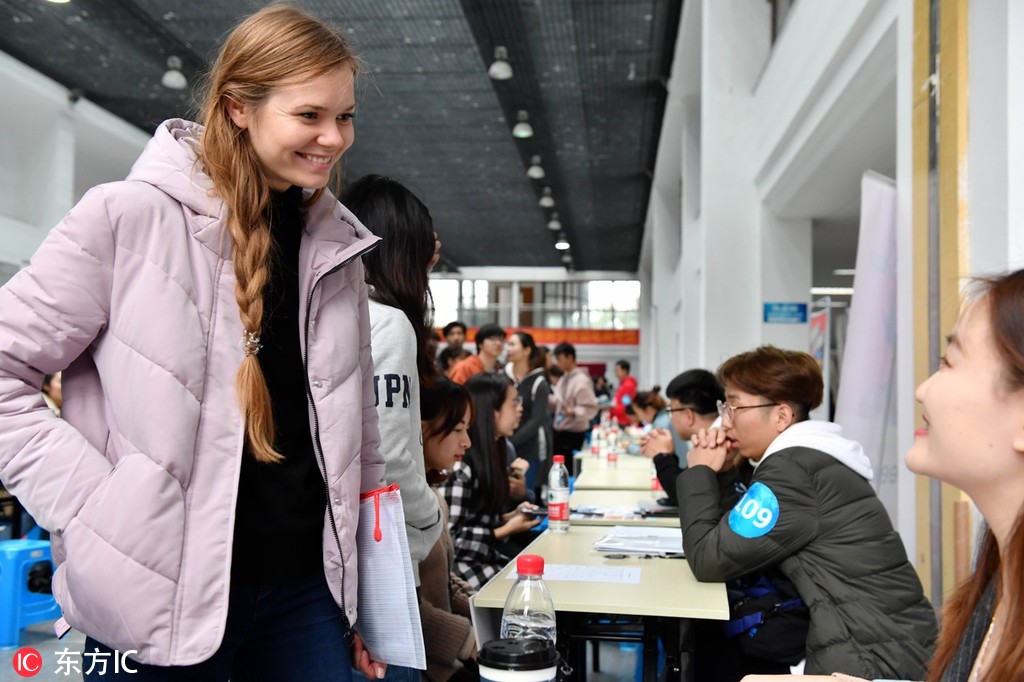US students in China discuss feelings


More than 100 students from the US East Coast who have studied in China got together in Manhattan recently to share their feelings about the country by telling their personal stories.
For most American and other international students who have been to China and studied there, China has left a variety of impressions on them different from what the textbooks and media led them to expect.
“Being from the US, I had lots of stereotypes in my mind because you hear many different things from the news and other people,” said Hobday Damie, a graduate of CUNY- Brooklyn College who went to China for a month two years ago.
“But when I got there, the first thing I noticed immediately might be the amount of construction going on; the government and the people were putting back into the environment and infrastructure,” Damie recalled.
He said there weren’t many Chinese who spoke English as in European countries, but they did help him a lot and he had a really good first impression of their hospitality.
“To anybody who has adverse feelings about China, I say get out there, make the trip, it’s a long plane ride, but it’s going to be worth it.”
West Trevor, a senior at Seton Hall University, first got interested in going to China because like many others, he believes the country is important to US foreign relations. He studied history and language at Peking University in 2016.
“When I started to learn Chinese and make Chinese friends and got to know more about Chinese culture, I found Chinese Taoism and Confucianism are very interesting, and that’s what I’ve been learning more and researching more about,” Trevor said.
Amish Vyas, who got his doctor of medicine degree from Wenzhou Medical University in 2013, said he was drawn to China by its extensive cultural heritage.
“When I got admitted into the five-and-a-half-year medical program, my relatives and parents thought that I might feel homesickness or culture shock, but to me, it was the country I had been dreaming of for years,” Vyas said.
“There is a special saying that Chinese culture is like an ocean, and if you are accepting of the local community’s way of life, you will be a happy creature in that ocean,” he said.
“I am extremely thankful to my university and the Chinese government for such a wonderful opportunity for education and from deep in my heart I wish to work for China after gaining enough experience here,” he added.
“Studying in China is a rare chance for American people, considering the far distance, the difference between the two nations, and the long entrenched misunderstanding,” Zhao Yumin, deputy consul general of China in New York, told the gathering at the China Institute last Friday.
“Deciding to study in China needs vision, needs ambition, and it needs guts, but I promise you it will definitely pay off,” he added.
James B. Heimowitz, president of the China Institute, also addressed the students and teachers attending the event.
“I’m concerned for the state of the relationship between what I view as the two most important countries on the planet,” he said.
“The only way we can possibly move forward is by building a deeper understanding, because nothing is going to happen without trust,” he said, adding that people-to-people and cultural exchanges are the most important foundation for that.
Ziqi Jiang in New York contributed to the story.































